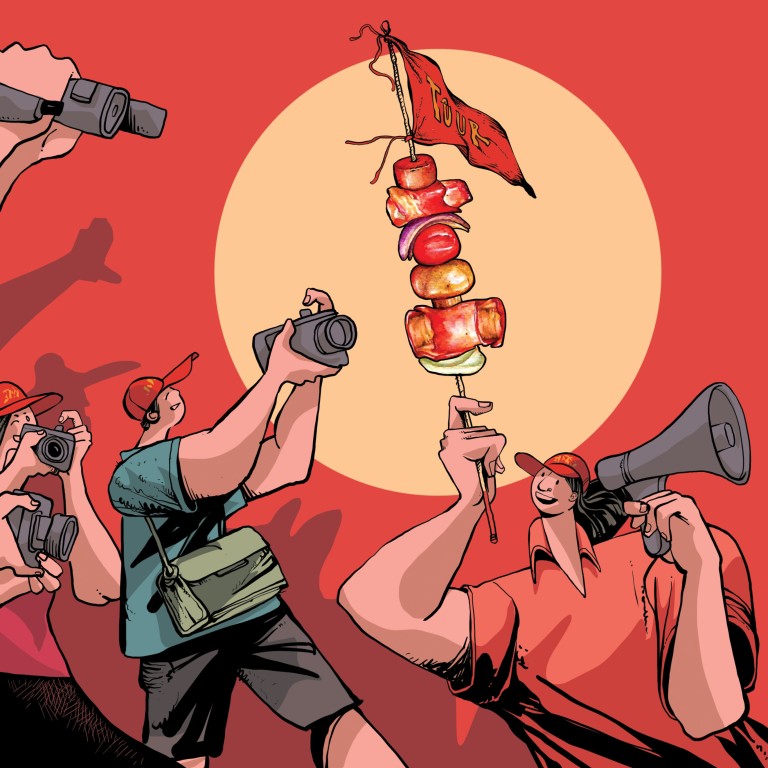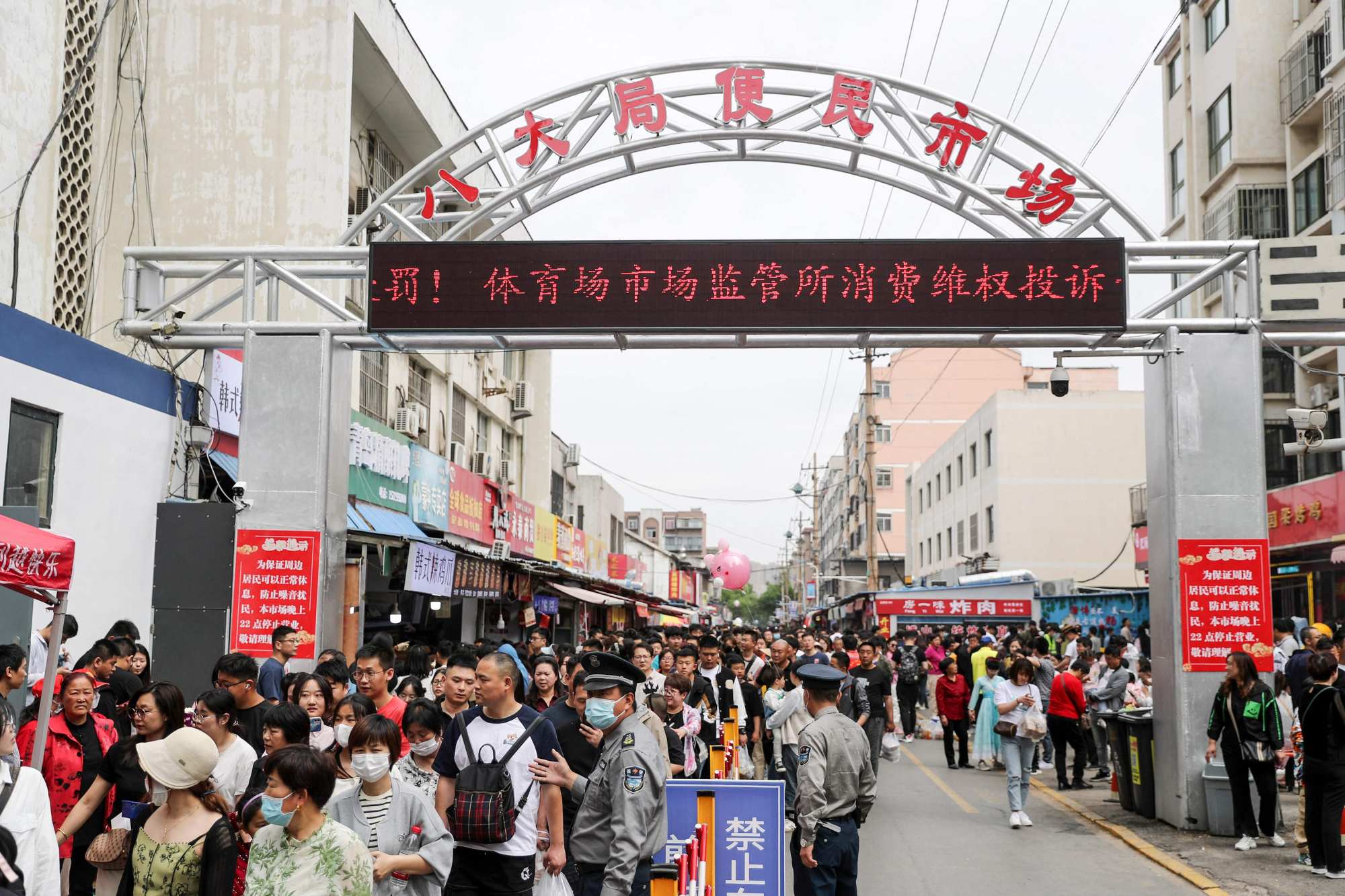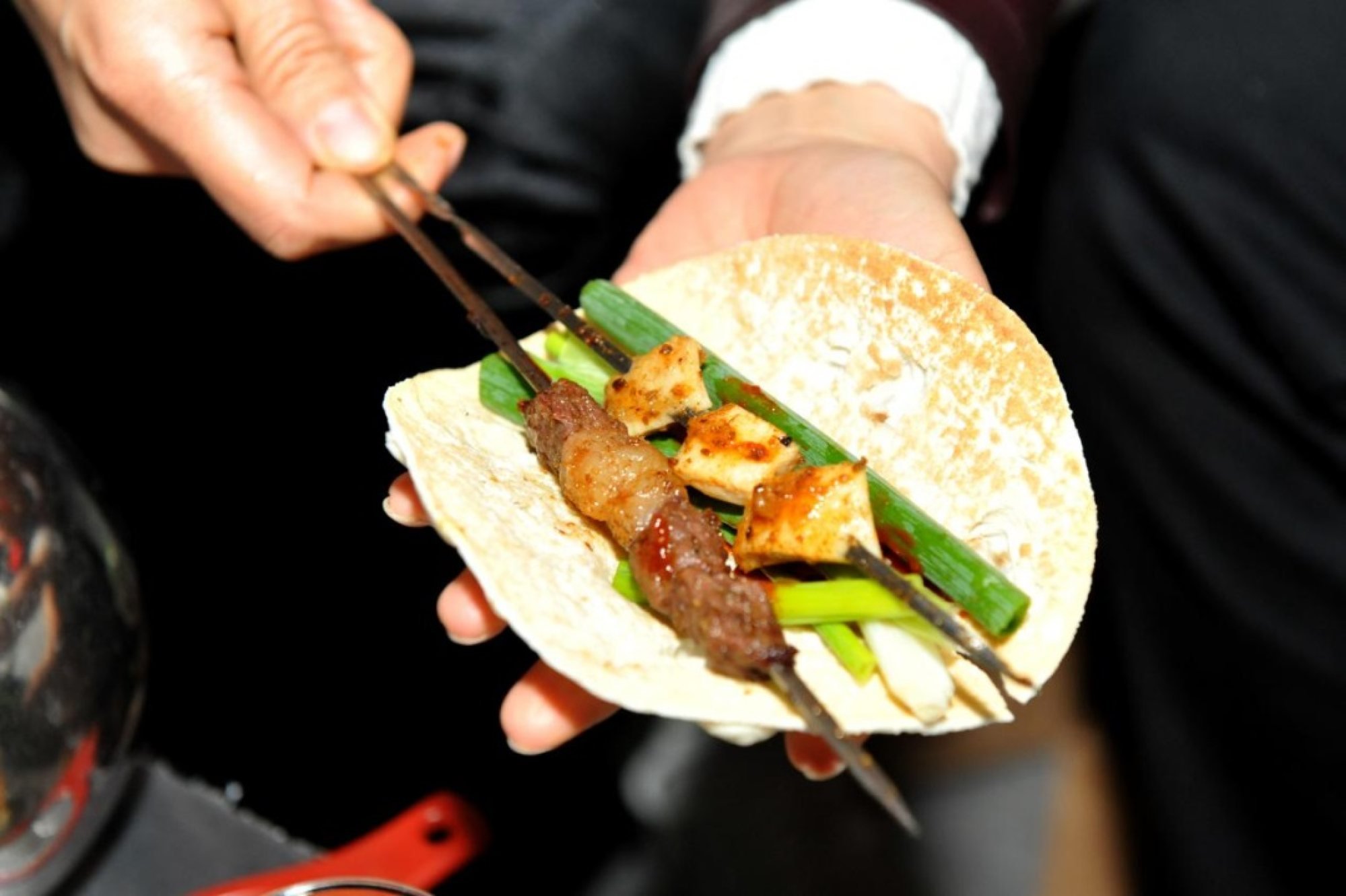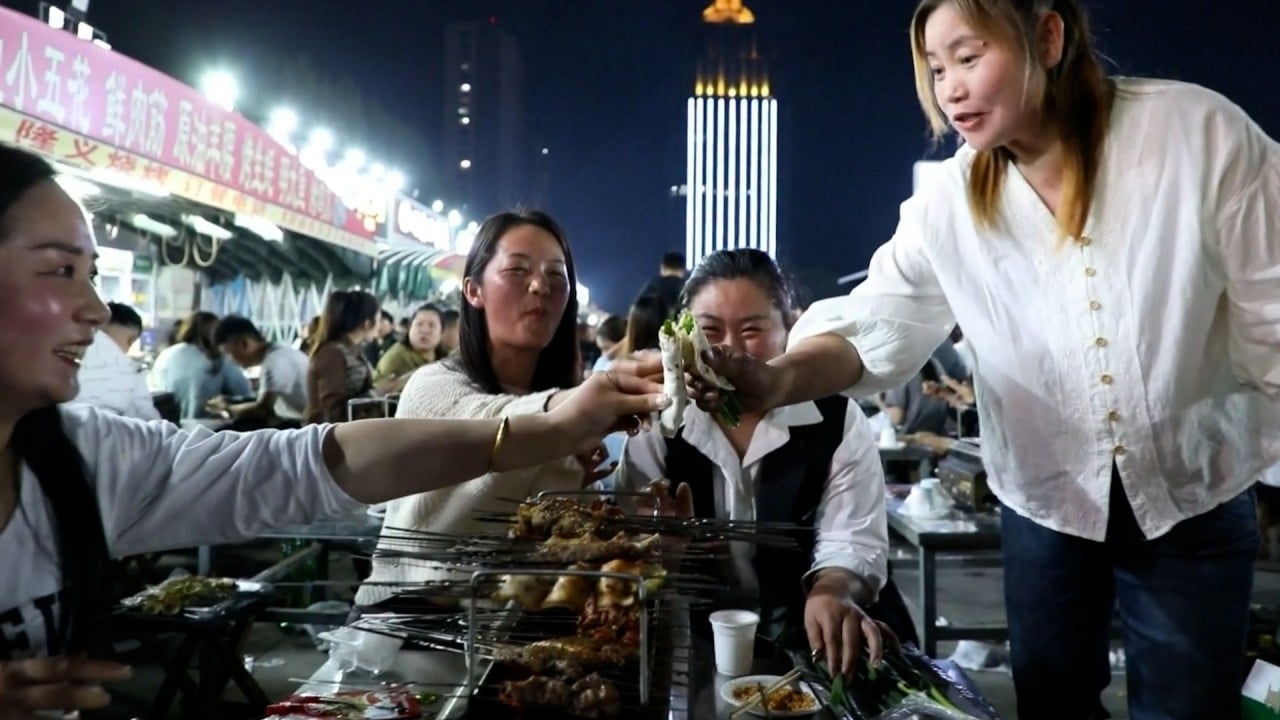
China’s barbecue boomtown: how Zibo fanned its fortunes with a food festival
- The eastern industrial city has struggled to shake off a downturn in its mainstay chemical industry
- A government campaign to tempt holidaymakers with grilled meat has buoyed revenue and raised hopes of an economic transformation
Before it became China’s “outdoor barbecue capital” for budget-conscious young Chinese travellers, Zibo was a little-known, rusting industrial centre struggling to keep up with the country’s rapidly changing economy.
The deeply indebted city in the eastern province of Shandong had been hammered by a drop in demand in its chemical industry, the mainstay of its economy. It has also struggled to retain its younger generations, who head out of the city for better opportunities elsewhere.
Then this year, city authorities launched a concerted tourism campaign to attract visitors with tight purse strings, dangling freebies for a “barbecue festival”.
The campaign worked. Millions of young holidaymakers from across the country headed to Zibo in search of flamed-grilled salty lamb in the weeks that followed.

Zibo has hundreds of barbecue restaurants and open-air stalls where diners can roast skewers of cumin-spiced meat over charcoal and eat them with chives in a pancake.
But catering is a small part of Zibo’s economy, which has been weighed down in recent years by weak export demand and Covid-induced disruptions in its chemical industry.
To boost revenue, Zibo decided to seize on the demand for lost-cost travel, unveiling a series of incentives to attract travellers on a budget for a “barbecue festival” over the May holiday.
As part of the promotion, the city government handed out discount vouchers, revamped bus routes and increased railway capacity to bring in the visitors.
The municipal government also launched an interactive map within WeChat, making it easier for tourists to find barbecue restaurants and hotels.
These government-led measures, coupled with glowing reviews from online influencers on Chinese social media platforms such as Weibo and Douyin, generated unprecedented buzz for Zibo’s barbecue scene.
Initially, younger Chinese consumers came in search of affordable holidays but word spread to attract other groups looking for an inexpensive break.
In all, more than 120,000 people descended on the city over the five days, the highest number of tourists during a holiday period in a decade.
“Zibo’s success is a case of government-driven boom,” said Chen Ji, a specialist on industrial economics at the Capital University of Economics and Business.
“There are many similar industrial cities in northeastern provinces facing similar challenges, but they have never devoted as much resources and effort to promote themselves as Zibo.”

Travel and spending were up throughout the country over the Labour Day holiday as Chinese holidaymakers put the pandemic behind them after three long years of restrictions.
However, travellers spent less, outlaying just 540 yuan per person during the national holiday compared with 645 yuan during the same time in 2019, according to data from the Ministry of Culture and Tourism.
The trending term refers to the increasingly popular militant-like travel planning strategy that involves cramming travel itineraries with as many attractions as possible and unconventional, cheap accommodation such as overnight stays in bathhouses or internet cafes.
That belt-tightening was apparent in Zibo. Online travel agency Qunar said that every tourist who went to Zibo for a barbecue meal spent 750 yuan on average on the trip, including transport and accommodation.
That is about half the per capita spending of visitors to more well known and established tourist centres like Chengdu in Sichuan province, home of the giant panda and hotpot.
The manager of a luxury hotel in Zibo said the hotel had seen a significant increase in bookings in recent months and it was fully booked during the May holiday.
But most visitors stayed for no more than two days, in part because there was little else to see.
“Zibo is not a tourist city after all. We don’t have that many attractions other than barbecue. So we expect the bookings will drop after the May holiday boom,” the manager said, declining to be named.
We don’t have that many attractions other than barbecue
Chen, from Capital University of Economics and Business, said bigger structural changes if tourism was to flourish in the city.
“Much of Zibo’s success is due to the government’s heavy involvement,” he said.
“But if Zibo wants to branch out into the service industry, it should leave it to market competition. We should also strengthen the overall economy and increase household disposable income so that people are willing to spend.”
Ren Zeping, a former chief economist at the real estate giant China Evergrande Group, said Zibo could try to capitalise on its tourism boom to overhaul its economy.
“Zibo has attracted much attention and earned a good reputation among the public with its earnestness … I hope Zibo can continue such good practice so as to encourage more people to invest and settle in Zibo,” Ren wrote on his WeChat account.
But he also said that “the fact that Zibo has managed to stand out with its barbecue but not with any major industry or technology breakthrough shows the weakness in Shandong’s economy”.
“In recent years, a host of promising enterprises in the new-energy sector have emerged along the Yangtze River Delta and Pearl River Delta regions, while Shandong has not progressed much from its traditional industries,” Ren said.
Ren added that while the barbecue boom reflected the city’s efforts to turn the economy around, more attention should be devoted to improving the overall business environment, in particular the private sector.
The local government has in recent years pledged to restructure its economy and move away from an overreliance on traditional industries of oil and chemical plants.
If Zibo does manage a wider revival in its economy, it could find it easier to attract and retain young talent.
But Lin Hua, who moved from Zibo to Hangzhou a few years ago for better career opportunities, said wages in the city remained low.
“I went to the best high school in Zibo and only one of my classmates chose to stay in the city after graduation. Most of us moved to other provinces because the wages were just too low in Zibo,” Lin said, adding that air pollution and a weak medical system had also deterred many from staying in the city.
“The only career options for those who chose to stay in Zibo are state-owned enterprises or becoming a civil servant,” Lin said.
To make the most of the boom, officials in Zibo need to encourage young people to stay longer than a barbecue meal.
“If the barbecue boom can bring new sectors and more opportunities, I would probably consider moving back to Zibo. It depends on whether young people like myself can see a future there beyond the current buzz,” Lin added.


